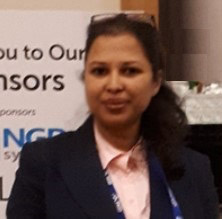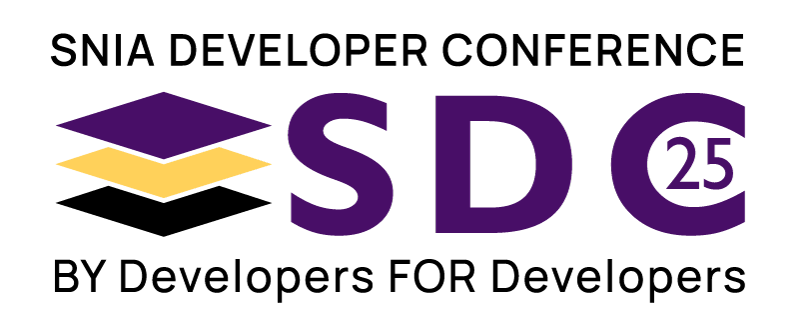SNIA Developer Conference September 15-17, 2025 | Santa Clara, CA

Swati Chawdhary

Sr. Fellow
AMD
Philip Ng is a Sr. Fellow at AMD where he works on I/O subsystem architecture including technologies such as PCI-Express and I/O virtualization. He holds a B.A.Sc and M.Eng from the University of Toronto.
Related Sessions
Uncovering Production Issues - with Real World Workload Emulation
Current enterprise storage devices have to service many diverse and continuously evolving application workloads (For e.g., OLTP, Big Data/Analytics and Virtualization). These workloads combined with additional enterprise storage services like deduplication, compression, snapshots, clones, replication, tiering etc. result in complex I/Os to the underlying storage. Traditional storage system tests make use of benchmarking tools, which generate a fixed and constant workload, comprised of a single or few I/O access patterns and are not sufficient for enterprise storage testing. Workload simulation-based tools, which are available in the market come with their own challenges like cost, learning curve and workload support. Hence, it has become a very big challenge to generate, debug and reproduce these workloads, which could eventually lead to many customer found defects. This arises a need for a robust testing methodology, which closely emulates production environment and helps identify issues early in testing. In our solution testing lab, we have been working on a unique test framework design which leverages software defined services and helps to uncover and reduce turnaround time for complex production issues. In our talk, we will show how we have built our test framework using containers and various open-source tools and its role in our solution testing efforts for our next generation storage products.
Building an Object based STaaS solution with Poseidon Storage
Samsung recently contributed Poseidon project, which is an OCP-based industry collaboration between component vendor (Samsung), system vendor(Inspur) and data center. Poseidon is an open-source storage software and hardware platform for NVMe-oF based systems. It's an EDSFF based storage reference system, targeted for performance and density, suitable for cloud data center. Today cloud service providers (CSP) are constantly challenged with large volumes of data and increasing demand from customers for cost effective storage. To solve these challenges, CSPs provide software-defined StaaS(Storage as a Service) solutions by exposing the data as a service. STaaS services can be deployed with object, block and file storage. Amongst these, object based STaaS service is becoming popular, as object storage is the dominant class of storage for the cloud. We deployed object based STaaS on Poseidon, which provides a high-performance storage platform, suitable for AI and ML workloads. Also, we integrated our STaaS deployment with Kubernetes to manage storage resources, just like compute resources, delivering full scale automation of both stateful and stateless components. In our talk, we will discuss how Poseidon helps in improving data center storage efficiency and performance and present the S3 performance benchmark numbers obtained for the STaaS deployment.
Building an Object based STaaS solution with Poseidon Storage
Samsung recently contributed Poseidon project, which is an OCP-based industry collaboration between component vendor (Samsung), system vendor(Inspur) and data center.
Poseidon is an open-source storage software and hardware platform for NVMe-oF based systems. It's an EDSFF based storage reference system, targeted for performance and density, suitable for cloud data center.
Today cloud service providers (CSP) are constantly challenged with large volumes of data and increasing demand from customers for cost effective storage.
To solve these challenges, CSPs provide software-defined StaaS(Storage as a Service) solutions by exposing the data as a service. STaaS services can be deployed with object, block and file storage. Amongst these, object based STaaS service is becoming popular, as object storage is the dominant class of storage for the cloud.
We deployed object based STaaS on Poseidon, which provides a high-performance storage platform, suitable for AI and ML workloads. Also, we integrated our STaaS deployment with Kubernetes to manage storage resources, just like compute resources, delivering full scale automation of both stateful and stateless components. In our talk, we will discuss how Poseidon helps in improving data center storage efficiency and performance and present the S3 performance benchmark numbers obtained for the STaaS deployment.


